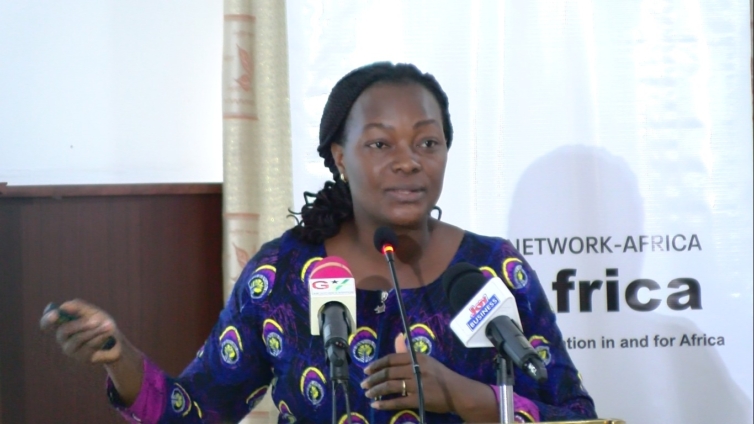A report by the Third World Network (TWN) -Africa on the impact of the Planting for Food and Jobs (PFJ) and One District One Factory (1D1F) has shown that low credit opportunities and lack of effective targeting are major challenges facing the programmes.
According to the Lead Researcher, Dr. Faustina Obeng, the lack of targeted credit support deprived many small holder farmers from full participation in the programme, affecting output.
Dr. Obeng said low credit opportunities, insufficient fertilizers and the lack of effective targeting are major challenges which hinder the output of the programme.
She noted that ineffective targeting of credit for small holder farmers in the hinterlands, particularly among female farmers made it difficult for them to scale up and contribute to the expected output.
“There was a challenge with the cost of input. When the partial credit around PFJ was removed, farmers could no longer access the needed fertilizers”, she said.
“Many farmers who could not afford the complete package of seeds and fertilizers reverted to using their old farmer-save seeds,” she added.
Dr. Obeng explained that famers struggled with the minimal capital provided for them since the use of modified seeds (prescribed under the PFJ programme) needed more fertilizers to survive.
The report also assessed the linkage between the Planting for Food and Jobs and the 1D1F programmes, pointing out that there was poor collaboartion.
Although output was increased in some farming jurisdictions, the study noted that some recommended breeds under the programme lacked the availability of ready markets for processing.
“If we look at the Gomoa area, you will find out that the factory situated to make use of orange fleshed sweet potatoes also invested in raw materials, and this did not help the farmers.” Dr. Obeng noted.
1D1F
On the impact of the 1D1F initiative, the report noted that inadequate funding support for the capital intensive sector was a major challenge for the full implementation.
“The low levels of loans and funding support from government to put up a whole factory and keep it running was a major challenge. For the factories running, more capital had to be injected by owners to ensure its survival.”
It also added that insufficient raw materials was a major worry for a significant number of factories.
Latest Stories
-
Small-scale miners condemn burning of excavators, demand probe
56 seconds -
Isaac Adongo urges Parliament to ‘take on’ GFA for safety measures ahead of GPL resumption
4 minutes -
No football without rigorous protocols – Isaac Adongo tells GFA
6 minutes -
Sammy Awuku links hooliganism to poor officiating, calls on GFA for action
22 minutes -
NPRA sacks NPP Central Regional Secretary
27 minutes -
Typhoid cases surge in Nanumba North amid water crisis
53 minutes -
Gregory Afoko files fresh bail application after 9 years on remand
55 minutes -
Specify where buffers were located in sinking fund for DDEP payments – Kwakye Ofosu to NPP
60 minutes -
NUGS announces demo against WAEC
1 hour -
‘Imposters caused post-match confrontations’ – Elmina Sharks deny acts of hooliganism
1 hour -
Evalue-Gwira-Ajomoro NDC Chairman rubbishes galamsey allegations
1 hour -
Daily Insight for CEOs: Strategic leadership – Driving business growth in a competitive market
1 hour -
ECG to engage Adidome residents following petition on frequent power outages
1 hour -
GJA’s accusations against government unfair – Kwakye Ofosu
1 hour -
A Rocha Ghana raises concern over mining license approvals amid gov’t review
1 hour

